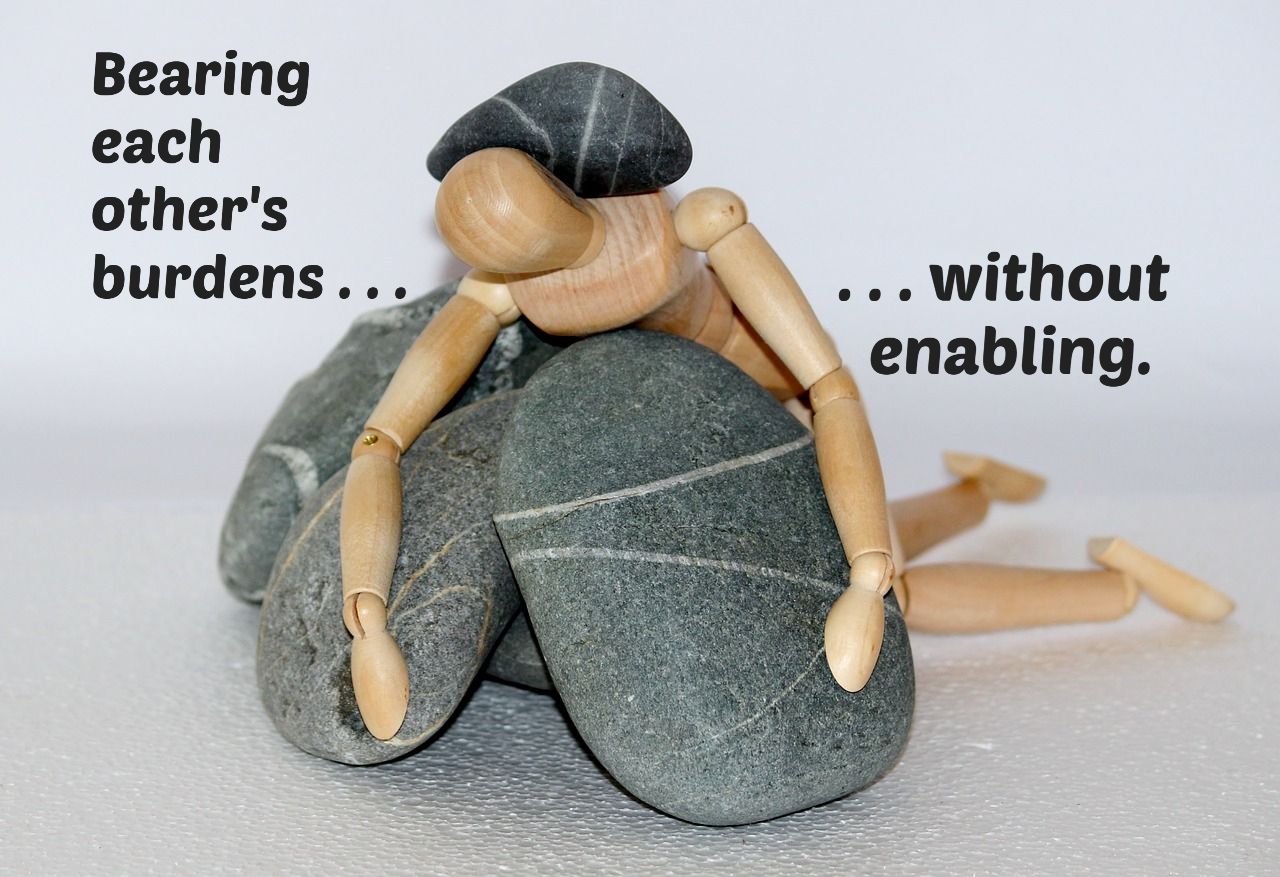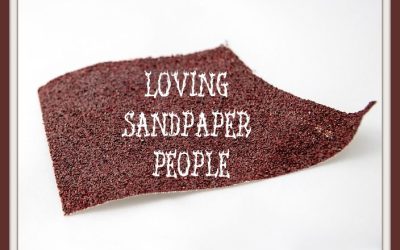Bearing Each Other’s Burdens Without Enabling
The season of giving has begun. Giving thanks. Giving gifts. And giving time and energy. Some say giving shouldn’t be limited to a range of dates on the calendar. The spirit of giving should last all year long. Others point to a growing sense of entitlement in our culture—the more you give, the more some people sit back and wait for more.
According to the Bible, both positions are valid depending on the context! Not only does Scripture affirm both perspectives, it also provides the solution for identifying when to give and when to hold back.
In his letter to the Galatian church, the apostle Paul wrote a seeming contradiction in one paragraph in Galatians 6:1-5:
“Brothers and sisters, if someone is caught in a sin, you who live by the Spirit should restore that person gently. But watch yourselves, or you also may be tempted. 2 Carry each other’s burdens, and in this way you will fulfill the law of Christ. 3 If anyone thinks they are something when they are not, they deceive themselves. 4 Each one should test their own actions. Then they can take pride in themselves alone, without comparing themselves to someone else, 5 for each one should carry their own load.”
Did you catch it? In verse 2, Paul said we should carry each other’s burdens. But in verse 5, Paul said each person should carry their own load or burden.
Which is it? And how does this guide us in knowing when we should help others with their burdens and when we shouldn’t?
The Greek word for burden in verse 2 refers to a heavy weight or trouble. It describes a weight related to pressure.[i] These burdens are not the routine responsibilities of life.
Sometimes the burdens of life become more than we can handle. Financial crises, health prognoses, loss of loved ones—these are the times when our heavenly Father steps in to meet our needs through others.
I’m an independent person who would much rather offer assistance than receive it. But after my husband died, I had choices as I adjusted to life as a new widow. I could “soldier on,” hiding my needs. After all, those around me had their own problems and responsibilities. Why should I presume to bother them with mine?
Or I could ask for help.
One of the functions of the body of Christ is to bear each other’s burdens. And I realized that not asking for help created two negative consequences. First, it allowed pride to rule in my life. And second, it denied my brothers and sisters in Christ the blessing of fulfilling Galatians 6:2.
Bearing one another’s burdens means receiving as well as giving. Before we learn how to help people carry their burdens, we need to learn how to share our own.
This verse is not saying we should become enablers. We should not be carrying someone else’s responsibilities, nor should we make excuses for those who fail to be responsible. In fact, just a few verses later in Galatians 6:5, the apostle Paul states, “each one should carry his own load.”
Is Paul contradicting himself? The answer becomes clear when we take another look at the original language.
The Greek word for load in verse 5 means “a load which one is expected to bear. It was used as a military term for a man’s pack or a soldier’s kit.”[ii] Here, Paul is referring to daily responsibilities.
Paul is not saying others should carry our routine obligations. But when the pressure of burdens threatens the collapse of a brother or sister in Christ, we have the opportunity of coming alongside one another to share the weight. Isn’t that what Christ did for us? He came to bear the burden of sin that was crushing us and He bore that burden on the cross for you and me.
So as we enter this holiday season—and all throughout the year—let’s not shrink back from assisting those being crushed under the weight of burdens too heavy for them to bear alone. That’s not enabling. It’s following the example of the Savior to whom we belong.
[i] Spiros Zodhiatos, The Complete Word Study Dictionary: New Testament, (Chattanooga, TN: AMG Publishers, 1992), 323 }
[ii] Cleon L. Rogers, Jr., The New Linguistic and Exegetical Key to the Greek New Testament, (Grand Rapids, MI: Zondervan, 1998), 432






0 Comments